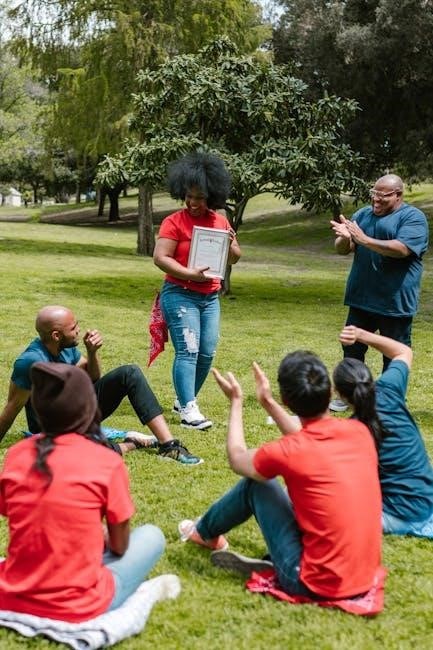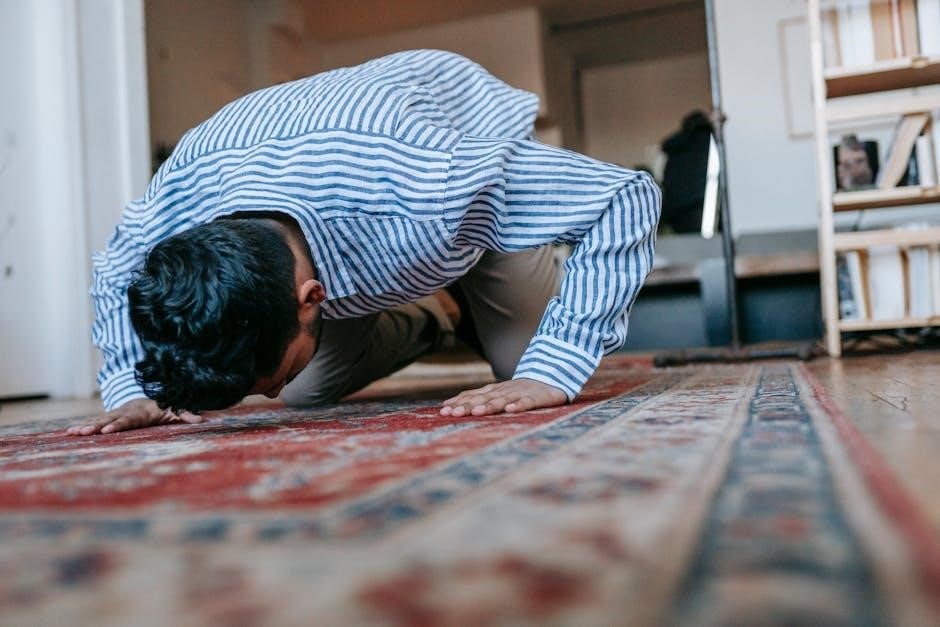In Domestic Extremist: A Practical Guide to Winning the Culture War, Peachy Keenan offers a bold vision for reclaiming traditional values and combating progressive ideologies through family, faith, and community.
Understanding the Concept of Domestic Extremism
Domestic extremism refers to a philosophy centered on preserving and promoting traditional cultural and societal values within a nation. It emphasizes the importance of maintaining strong community ties, family structures, and religious foundations as a defense against external influences that seek to erode these pillars. Unlike foreign policy-focused extremism, domestic extremism is inward-facing, concentrating on cultural renewal and societal cohesion. At its core, it advocates for a return to timeless values, often in opposition to progressive ideologies that are perceived as threatening traditional norms. This concept is deeply rooted in the belief that a stable society is built on shared values, moral clarity, and a collective identity. By fostering a sense of belonging and unity, domestic extremism aims to counteract the fragmentation caused by modern societal shifts.
The Importance of Winning the Culture War

Winning the culture war is essential for preserving traditional values and ensuring the long-term survival of a society rooted in its heritage. The culture war is a battle for control over the narrative that shapes societal norms, values, and institutions. If progressive ideologies dominate, they risk eroding the foundation of Western civilization, leading to moral decay and social fragmentation. By winning this war, conservatives can reclaim influence over education, media, and entertainment, ensuring that future generations are raised with a strong sense of identity and moral clarity. The stakes are high, as the outcome will determine whether societies remain grounded in timeless principles or succumb to relativism and chaos. This struggle is not just political but deeply personal, impacting how families, communities, and nations function. Victory in the culture war is crucial for fostering resilience and unity in the face of escalating cultural and ideological challenges.
Overview of Peachy Keenan’s Approach

Peachy Keenan, a prominent figure in the domestic extremist movement, advocates for a practical and assertive approach to winning the culture war. Her strategy emphasizes the importance of reclaiming cultural and political power through grassroots efforts and a return to traditional values. Keenan argues that the decline of Western civilization is rooted in the erosion of family structures, religious faith, and community cohesion. She calls for a rejection of progressive ideologies that prioritize individualism over collective identity. Her approach focuses on empowering individuals to take action at the local level, such as engaging in school board elections, supporting conservative candidates, and fostering strong family ties. Keenan also stresses the need to challenge the cultural narratives promoted by media and education systems. By combining personal responsibility with community-driven activism, she believes conservatives can reverse the tide of cultural decline and restore a society grounded in timeless principles.

The Core Principles of Domestic Extremism
Domestic extremism centers on preserving traditional values, family, and community, opposing progressive ideologies and globalism. It advocates for cultural identity, sovereignty, and resistance to societal decay.
Embracing Traditional Values
Embracing traditional values is central to domestic extremism, emphasizing the importance of heritage, morality, and time-tested principles. These values, rooted in history and culture, provide a foundation for societal stability and cohesion. Traditional values often include notions of family, religion, and community, which are seen as essential to counteracting the erosion of cultural identity. By prioritizing these principles, individuals can resist the influence of progressivism and globalism, which are perceived as threats to national sovereignty and local traditions. This approach encourages a return to simpler, more grounded ways of life, rejecting the ideologies that undermine established norms. It also fosters resilience against cultural decline by promoting self-reliance and a strong sense of shared identity. Ultimately, embracing traditional values is seen as a vital step in preserving civilization and ensuring its continuation for future generations.
The Role of Family and Religion
The family and religion are cornerstone institutions in the fight against cultural decline. They provide moral guidance, foster resilience, and cultivate a sense of belonging. Strong families, rooted in traditional roles, are seen as the bedrock of societal stability, while religion offers a moral framework that counters secularism and relativism. Together, they preserve cultural identity and transmit values across generations. By prioritizing these institutions, individuals can resist the erosion of meaning in a postmodern world. The family unit, in particular, is viewed as a bulwark against atomization and societal fragmentation. Religion, meanwhile, provides spiritual strength and a shared purpose. Both are essential for rebuilding and sustaining a culture grounded in enduring principles. Their revitalization is critical to winning the culture war and ensuring the survival of civilization.
Rejecting Elitist and Progressive Ideologies
Rejecting elitist and progressive ideologies is central to reclaiming cultural dominance. These ideologies often promote relativism, erode traditional values, and undermine the social fabric. Elitism, with its emphasis on intellectual superiority, discredits the wisdom of ordinary people, while progressivism seeks to dismantle established norms. By rejecting these frameworks, individuals can resist the cultural erosion caused by globalism and secularism. This rejection involves challenging the narratives pushed by academia, media, and political elites, which often prioritize ideology over common sense. Embracing a counter-cultural mindset fosters resilience against these influences. It also encourages individuals to reassert their cultural identity and heritage. Rejecting elitism and progressivism is not about stagnation but about preserving the values that have historically strengthened societies. This stance is vital for restoring balance and ensuring the survival of timeless principles in a rapidly changing world.
Focus on Neighborhood and Community

Focus on neighborhood and community is a cornerstone of cultural resilience. Strong, tightly-knit communities are the bedrock of societal stability and cultural preservation. By prioritizing local relationships and shared values, individuals can counteract the alienating effects of globalization and technological isolation. Neighborhoods foster organic relationships, mutual support, and a sense of belonging, which are essential for cultural continuity. Community-focused efforts, such as local events, volunteerism, and small businesses, strengthen social bonds and create a bulwark against external ideologies. This approach encourages individuals to invest in the people and places they know, rather than abstract concepts; By nurturing local identity, communities can resist the homogenizing forces of modernity and reclaim their cultural heritage. A strong, interconnected community is not only a source of comfort but also a powerful tool in the culture war, enabling collective action and resilience against societal shifts.

The Adversaries in the Culture War
The adversaries include progressive movements, media bias, and educational institutions promoting liberal ideologies that undermine traditional values and societal norms.
The Influence of Feminism and Identity Politics
Feminism and identity politics have become significant adversaries in the culture war, challenging traditional values and promoting ideologies that often divide society. These movements emphasize individual identity over collective unity, fostering division and resentment.
Identity politics, in particular, has created echo chambers where groups prioritize their grievances over shared cultural goals. Feminism, while initially focused on equality, has evolved into a movement that often dismisses biological realities and traditional gender roles.
Both ideologies undermine the nuclear family by promoting self-centeredness and rejecting complementary gender roles. This shift has eroded societal cohesion and paved the way for radical progressive agendas that threaten domestic stability and cultural heritage.
The Role of Media and Hollywood
Media and Hollywood play a pivotal role in shaping cultural narratives, often promoting progressive ideologies that undermine traditional values. By selectively reporting news and crafting entertainment that glorifies liberal perspectives, these institutions influence public opinion and normalize radical ideas.
Movies, TV shows, and news outlets frequently portray conservative viewpoints as outdated or oppressive, while celebrating diversity and inclusivity as moral imperatives. This subtle yet pervasive bias erodes trust in traditional institutions and weakens cultural cohesion.
Furthermore, media and entertainment platforms amplify identity politics, reinforcing divisions and fostering resentment. Their influence is a key battleground in the culture war, as they shape perceptions and dictate societal norms. Countering their impact is essential to preserving traditional values and achieving cultural renewal.
Big Tech and Its Impact on Society
Big Tech companies wield significant influence over public discourse, often acting as gatekeepers of information and ideas. Platforms like Google, Facebook, and Twitter control vast networks where cultural narratives are shaped. Their algorithms prioritize certain content, frequently amplifying progressive viewpoints while suppressing conservative perspectives.
Shadow banning, content moderation, and censorship have become tools to silence dissenting voices, particularly those advocating for traditional values. This manipulation of information flows undermines free speech and distorts public opinion, fostering a culture of conformity.
Big Tech’s monopolistic power further exacerbates these issues, limiting competition and alternative platforms. Their dominance in shaping societal norms makes them a critical front in the culture war, as their policies and practices often align with progressive agendas, marginalizing opposing views.
Education Systems and Their Role in Cultural Shifts
Modern education systems have become battlegrounds in the culture war, as they increasingly prioritize progressive ideologies over traditional values. Schools and universities are no longer merely institutions for academic learning but have evolved into centers for social engineering. Curricula often emphasize gender studies, critical race theory, and environmental activism, reshaping students’ worldviews.

This shift has led to a generation of young people who question traditional norms and authority structures. Education systems now prioritize diversity, equity, and inclusion over merit and objective truth, creating a society more aligned with progressive agendas.
By influencing young minds, education systems play a pivotal role in cultural transformation. To counter this, conservatives must reclaim education, ensuring it reflects timeless values rather than ideological indoctrination. This is essential for preserving Western heritage and winning the culture war.

Strategies for Winning the Culture War
Winning the culture war requires reclaiming institutions, grassroots activism, and education reform. Empowering communities and engaging media effectively are critical strategies to restore traditional values and counter progressivism.
Reclaiming Institutions
Reclaiming institutions is a cornerstone strategy in the culture war, focusing on infiltrating and influencing key sectors like education, media, and government. By placing like-minded individuals in leadership roles, traditional values can be reintroduced and promoted. This approach targets the systemic erosion of cultural norms, aiming to reverse progressive ideologies embedded in these institutions. Grassroots efforts, such as running for school board positions or advocating for policy changes, empower individuals to reshape societal structures. Reclaiming institutions ensures that cultural narratives align with conservative principles, fostering a shift in public opinion and policy. This strategy emphasizes the importance of persistence and strategic placement to restore balance and promote domestic extremist ideals effectively.
Grassroots Activism

Grassroots activism is a powerful tool for driving cultural change by mobilizing individuals at the local level. This approach emphasizes personal involvement in communities, fostering a sense of ownership and responsibility. By organizing town halls, rallies, and neighborhood initiatives, activists can directly engage with citizens, spreading traditional values and countering progressive narratives. Grassroots efforts often focus on practical goals, such as influencing school curricula, supporting local candidates, or advocating for policy changes. The strength of this strategy lies in its ability to create a ripple effect, as small, consistent actions can lead to significant societal shifts. Empowering individuals to take action in their own communities is essential for reclaiming cultural ground and ensuring long-term success in the culture war.
Educating the Next Generation
Educating the next generation is crucial for ensuring the survival and dominance of traditional values in the culture war. Parents and educators must prioritize imparting timeless principles such as patriotism, moral integrity, and respect for heritage. By teaching children to think critically and reject progressive ideologies, families can equip them to navigate a society increasingly influenced by identity politics and relativism. Homeschooling or participating in curriculum development are effective ways to ensure children receive an education aligned with domestic extremist values. This focus on youth empowerment not only strengthens families but also guarantees a future workforce and citizenry committed to cultural renewal; Investing in the next generation is an act of resistance against societal decay and a blueprint for long-term victory in the culture war.
Engaging with Media
Engaging with media is a critical strategy in the culture war, as it allows individuals to challenge narratives and promote traditional values. By supporting conservative media outlets and creating content that reflects domestic extremist ideals, individuals can counterbalance the influence of progressive voices. Social media platforms provide a powerful tool for spreading messages, organizing movements, and amplifying grassroots efforts. However, it is essential to navigate these spaces wisely, avoiding censorship while adhering to community guidelines. Collaborating with influencers and content creators who align with domestic extremist principles can also help disseminate ideas to wider audiences. Ultimately, effective media engagement requires a combination of strategic communication, cultural literacy, and a commitment to advancing the values of domestic extremism. By reclaiming the narrative, individuals can reshape public perception and foster a more traditional society.
Personal Empowerment
Commitment to family, rejecting careerism, and embracing domesticity empower individuals to reclaim their cultural identity, fostering resilience and a renewed sense of purpose in society.
Commitment to Family
At the heart of domestic extremism lies a profound commitment to family as the cornerstone of society. This philosophy emphasizes the importance of strong, stable households where traditional roles are embraced, and values are passed down through generations. By prioritizing family, individuals create a bulwark against the erosion of cultural identity and moral decay. Parents are seen as the primary educators and moral guides, nurturing children in a framework of discipline, respect, and patriotism. This commitment extends beyond individual households, fostering a sense of community and shared responsibility. Rejecting the notion that career and self-interest should supersede family life, domestic extremists advocate for policies and practices that support marital fidelity, child-rearing, and the preservation of familial bonds. In doing so, they aim to rebuild society from the ground up, ensuring a future rooted in enduring values.

Rejecting the Cult of Careerism
Rejecting the cult of careerism is a cornerstone of domestic extremism, emphasizing the need to prioritize family and community over professional ambition. In a society that often measures worth by career success, this approach challenges individuals to redefine their values. By rejecting the notion that personal fulfillment is tied to career advancement, people can focus on nurturing their households and contributing to local communities. This shift encourages a healthier work-life balance and fosters stronger familial bonds. It also promotes a sense of identity rooted in tradition and cultural heritage rather than professional achievements. By embracing domesticity, individuals can resist the pressures of modern capitalism and create a more sustainable, meaningful way of life. This rejection of careerism is not about stagnation but about reorienting priorities to what truly matters: family, faith, and community.
Embracing Domesticity
Embracing domesticity is a powerful act of resistance against the cultural forces that devalue traditional roles and responsibilities. By prioritizing home, family, and community, individuals can create a stable foundation for societal renewal. Domesticity fosters a sense of belonging and continuity, countering the alienation and disconnection of modern life.
This approach challenges progressive ideologies that dismiss the importance of homemaking and childcare. By valuing these roles, individuals reclaim their autonomy from elitist narratives that prioritize career over family. Domesticity also cultivates practical skills, self-reliance, and a deeper connection to local traditions and customs.
Ultimately, embracing domesticity is not just a personal choice but a political statement. It rejects the notion that fulfillment comes solely from professional success, instead affirming the dignity of nurturing and building strong, resilient communities. This mindset is essential for reclaiming cultural ground and fostering lasting change.
The Broader Impact
Cultural Renewal
Domestic extremism sparks cultural renewal by reinvigorating traditional values, fostering unity, and countering societal decline, ensuring a stronger, cohesive society for future generations.
Societal Transformation
By challenging progressive norms, domestic extremism fosters long-term shifts in cultural and political landscapes, reshaping institutions and promoting a return to foundational principles and order.
Cultural renewal lies at the heart of the domestic extremist movement, aiming to restore traditional values and social cohesion. By reviving timeless principles, society can mend the fractures caused by modern progressivism. This renewal emphasizes the importance of shared cultural identity, fostering unity through common traditions and moral frameworks. It rejects the fragmented individualism promoted by progressive ideologies, instead championing a collective sense of purpose rooted in heritage.
Domestic extremists argue that cultural renewal begins at the local level, where communities can reclaim their unique character and resist homogenization. This approach prioritizes the preservation of customs, language, and history, ensuring future generations inherit a cohesive and meaningful cultural legacy. By focusing on renewal, the movement seeks to create a society where tradition and innovation coexist harmoniously, guiding humanity toward a more stable and enduring future.
The societal transformation sought by domestic extremism aims to restore traditional values and community-centric living. By rejecting globalist ideologies, the movement emphasizes local governance, cultural identity, and family-oriented policies. This shift seeks to rebuild societal cohesion, fostering a sense of belonging and shared purpose. The transformation involves reclaiming public spaces, promoting cultural heritage, and revitalizing local economies. It encourages individuals to prioritize community well-being over corporate interests, creating a more resilient and self-sufficient society. Through this transformation, the movement aims to counter progressive ideologies and foster a society rooted in timeless values, ensuring a stable foundation for future generations; The goal is to create a society where traditional norms and community ties flourish, leading to a more ordered and meaningful way of life.
Domestic extremism offers a roadmap to reclaim cultural narratives, emphasizing tradition and community over progressive ideologies. By fostering resilience and unity, society can revitalize its foundational values and thrive.
Final Thoughts on Domestic Extremism
In the context of the culture war, domestic extremism emerges as a powerful ideology that seeks to reclaim and preserve traditional values in the face of progressive erosion. It champions the idea that cultural renewal begins at home, emphasizing the importance of family, religion, and community as the bedrock of society. By rejecting elitist ideologies and focusing on grassroots activism, individuals can reclaim institutions and shape a future that honors timeless principles.
Domestic extremism is not merely a political stance but a way of life. It calls for a rejection of the cult of careerism and a re-embrace of domesticity, where individuals prioritize their roles as caregivers, parents, and neighbors. This approach fosters resilience and unity, enabling society to withstand the pressures of modernity while fostering a deeper connection to heritage and tradition.
Ultimately, domestic extremism offers a vision of cultural renewal, where individuals empower themselves by living out their values. It is a call to action, urging people to take control of their lives and communities, ensuring that the next generation inherits a world rooted in stability, faith, and the enduring strength of traditional values.
A Call to Action
The battle for cultural dominance demands immediate and collective action. Each individual must recognize their role in shaping the future. Start by reclaiming your voice and refusing to be silenced by agendas that erode traditional values. Engage in grassroots efforts, support like-minded leaders, and advocate for policies that strengthen families and communities. Educate yourself and others about the importance of preserving cultural heritage. Reject the narratives that seek to divide and weaken society. The fight for the culture is not just political—it is deeply personal. Every decision, from how you raise your children to the media you consume, contributes to the larger struggle. Commit to being a force for change and inspire others to join the movement. Together, we can restore the values that once made our society thriving and united.



